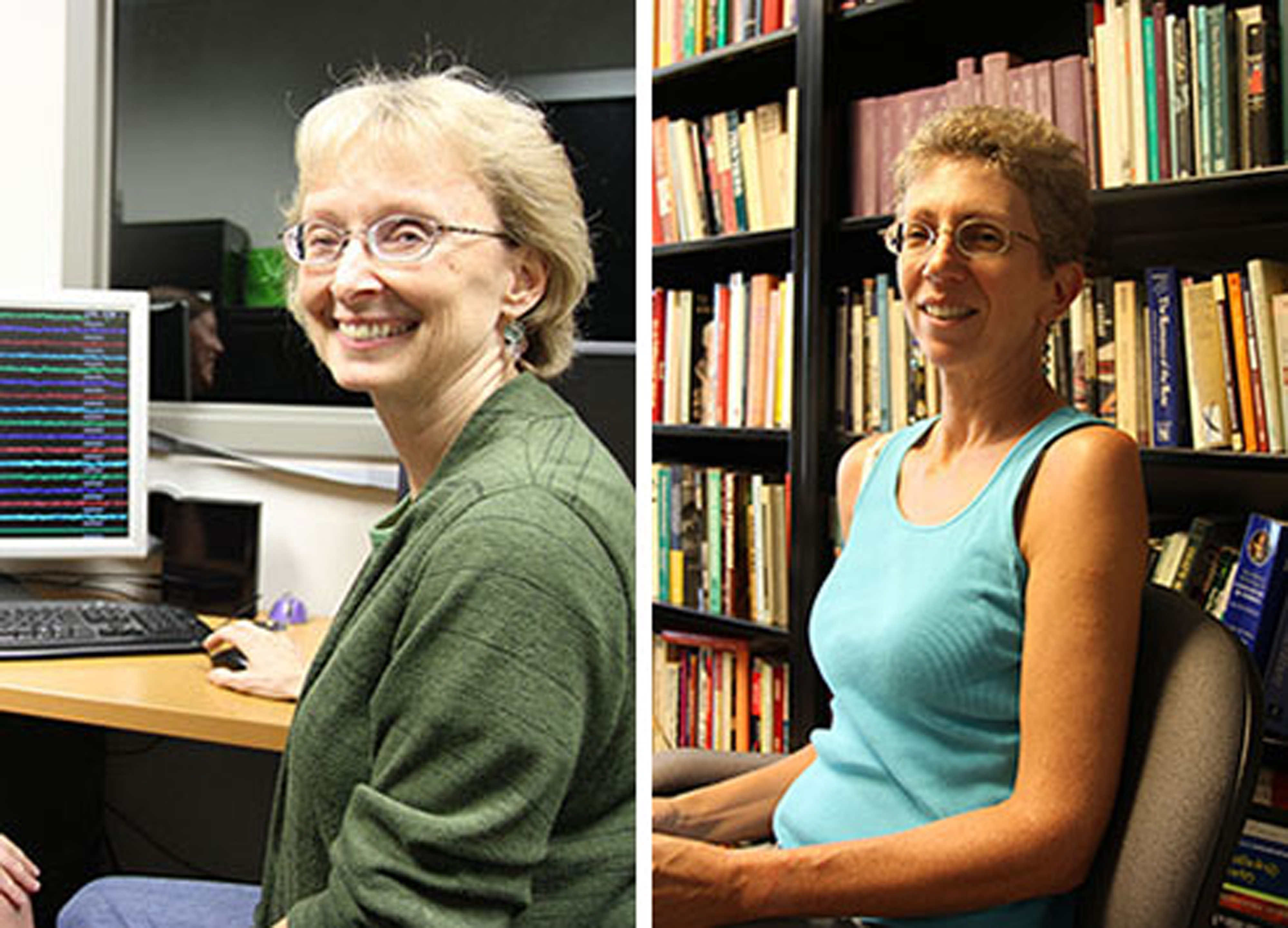Institute for Society, Culture and Environment announces two new senior Fellows

The Institute for Society, Culture and Environment has awarded Bernice L. Hausman, professor of English in the College of Liberal Art and Human Sciences, and Martha Ann Bell, professor of psychology in the College of Science, with senior fellowships.
Hausman, who currently leads the Vaccination Research Group at Virginia Tech and is also affiliated with the Virginia Tech Carilion School of Medicine, will use the fellowship to advance research in two interrelated subjects: the rhetoric of decision making and the historical and social contexts of vaccination refusal. Understanding the historical and social contexts in which a person refuses or delays vaccination is enhanced by studying the language used to justify or explain these choices.
According to Hausman, there is a research gap in understanding why people refuse vaccination for themselves or for their children. Medical research has focused on whether this refusal is due to limited scientific literacy -- an approach which Hausman believes does not fully capture the reasons why vaccinations have become exceedingly controversial.
“We are interested in deeply understanding social and cultural contexts of vaccination controversy and we don't assume the problem is lack of scientific literacy on the part of parents. We think vaccination controversy represents significant tensions in health care and the role of the state in public health,” said Hausman.
Hausman states that “currently there are few communication tools for medical practitioners to develop successful dialogues with patients concerning vaccination refusal.” Her project aims to address this problem by deepening practitioners’ knowledge about vaccination refusal and the sociocultural contexts that motivate and sustain it.
Bell will be using the fellowship time to add a vital element to her research toolbox called event related potential. This methodology will be used to expand upon her infant development research. Currently, Bell utilizes the electroencephalogram (EEG) and the electrocardiogram (ECG) to examine electrophysiological correlates of infant memory, attention, and self-regulation. She states that “the cognitive processes of infants may have implications for later school success.”
The electroencephalogram methodology that Bell currently utilizes offers a standard global measure of the cognitive processes. However, the methodology she will learn during the fellowship, event related potential, will offer insight into specific patterns of electrical activity associated with specific stimuli; for example, an infant’s immediate reaction to a familiar object versus a novel one. The event related potential methodology is a subset of the electroencephalogram methodology but offers a more reactive portrait. The difference is analogous to watching general patterns of waves in the ocean and seeing how they change over time as the tide increase or decreases versus watching a large object drop into water and seeing the immediate rippling that object caused.
Bell stated “The event related potential methodology would allow us to ask different questions about how the brain functions and how an infant’s brain reacts to different information, thus furthering our knowledge of infant cognitive development.”
The institute's senior fellowship program is designed to support faculty members who are pursuing an innovative research agenda that has strong potential for significant external funding. Director Karen Roberto noted that “Hausman and Bell were selected from a competitive pool of applicants and their projects are excellent examples of the transformative research supported by institute.”








